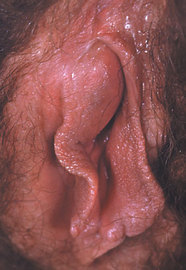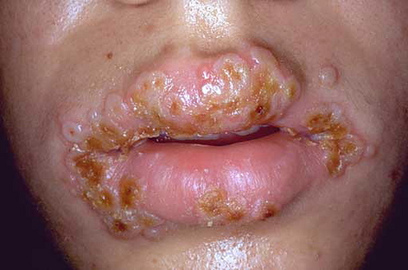Overview on Sexually Transmitted Diseases

The term sexually transmitted disease (STD) is roughly defined as any form of infection that’s contracted mainly through sexual activities or contact. Another term for it is sexually transmitted infection (STI). In the past, STD was referred to as venereal disease, or those diseases that are transmitted only through sexual intercourse.
More than 50 organisms are known to cause STD; be it bacteria, virus, or protozoa. STDs commonly share the same characteristics. They can be transmitted by any sexual activity between opposite-sex or same-sex partners, and not only through vaginal-penile sex but also oral and anal sex. If a person has STD, he/she won’t gain immunity against future reinfection with that particular STD or with any other type of STD. Also, there are some STDs that frequently coexist in the same individual. STDs can affect any individual from any gender, culture, race, age-group or socioeconomic class. However, studies say that women are the ones who are most affected by these diseases. Symptoms vary according among STDs and depend upon the causative agent and the location of the infection, whether local or disseminated. These diseases may be classified according to their initial symptoms and diagnostic testing is individualized for each disease.
Common Type of STDs

The five most widely-known STDs are gonorrhoea, chlamydia, genital herpes, genital warts, and syphilis. Other infections are chancroid, trichomoniasis, and human immunodeficiency virus (HIV). The number of STD cases is increasing as new organisms have been associated to cause transmission of these diseases.
Chlamydia is the most common form of STD in the U.S. It is caused by a gram-negative bacteria Chlamydia trachomatis and is transmitted through intimate sexual contact. It mainly affects the cervix, urethra, and rectum but in most cases, the infection remains to be asymptomatic for a long period of time. Gonorrhea is caused by a gram-negative bacteria Neisseria gonorrhoeae. Clinical manifestations of this disease can be divided into two groups: local and disseminated. Genital herpes is an intermittent, systemic infection caused by herpes simplex virus (HSV) type 2. This STD is the most common cause of genital ulceration, and the incidence is high among adolescents. On the other hand, genital warts are caused by human papillomavirus (HPV). This disease has become epidemic, diagnosed in about 5.5 million people annually. These are benign growths that usually appear in multiple, painless clusters on a woman’s vulva, vagina, cervix and perineum; and glans penis in men. Syphilis is a highly infectious disease caused by the motile spirochete Triponema pallidum. This disease usually affects multiple organ systems and is worrisome because it is often associated with HIV.
Treatment and Management of STDs

Infected persons need to be assessed for treatment right away, as well as their sexual partners. Treatment of STDs is aimed on eliminating the causative agent, if possible, or managing a long-term condition.
Administration of antibiotics is warranted if the STD is caused by bacteria, such as gonorrhoea, syphilis, and chlamydia. Oral antibiotics should be taken evenly on a daily basis. Doxycycline and ceftriaxone are often given to a person with STD. However, infected persons should be informed that doxycycline can lessen the effectiveness of contraceptives and should not be given with dairy products, antacids and iron. Persons treated with gonorrhoea should be treated for chlamydia as well, and vice versa. Penicillin is usually given to a person with syphilis.
Antiviral agents are given for HPV and herpes infections, usually in the form of topical drugs. These drugs have specific reactions with regards to frequency of usage, duration of therapy, and additional skin care. Podophyllin prevents division of cells. Imiquimod is enhances local immunity. Cryotherapy is used for cell lysis. Application of certain acids also causes protein coagulation and destruction of warts. Commonly used drugs for herpes are acyclovir, famciclovir and valacyclovir.
Antiprotozoal agents like oral metronidazole are used to treat trichomonoiasis. It works to relieve symptoms, cures the disease and stops transmission.
Additional Tips in Treating STDs
Infected persons always need support in order to maintain compliance with drug therapy. Clients should avoid alcohol consumption during oral therapy for about 24 hours to avoid adverse reactions. Topical ointments should be applied wearing gloves to avoid transmission of highly-contagious diseases like herpes and HPV infections. Antiprotozoal drugs like topical metronidazole are usually not recommended for use because it is not as effective as the oral form. If the disease is recurrent, drug therapy is usually more effective during the prodromal phase.
Always use new condom for every act of penetrating sexual activity. Latex condoms are more effective barriers to STDs. Use it appropriately, effectively, and consistently.
Visit your doctor, look for accurate, factual and specific information with regards to specific STDs, and clarify for misinformation with regards to these diseases.
Comments
Most Recent Articles
-
How Shigella Is Treated
Shigella is a bacterium that can cause severe diarrhea or gastroenteritis in humans. Shigella is named after a Japanese scientist named Shiga who discovered the bacteria. Shigellosis, also ...
-
the Most Common Zoonotic Disease
You may not be familiar or would have never heard the term Zoonotic diseases, but yes they exist. These are infectious diseases transmitted from animals whether wild or domesticated, to huma...
-
How To Protect Yourself From Diseases Trees
During summer when the weather’s warm and sunny, one of the family bonding moments we have is camping in the woods with the entire family members. We look forward to bonfires, marshmal...
-
The Most Deadly Sex Disease
Sex diseases are commonly known as sexually transmitted diseases and are popularly known as STDs. Its older term was venereal disease or VD. As it is clearly pointed out by the name, sexual...
-
What Deseases Are Caused By Low Vitamin Intake
People who have low vitamin intake may cause often deseases and low immune system. Vitamins and minerals are usually comes from the food we eat such as green leafy vegetables, fruits an...
-
How To Protect Yourself From Spirilla
Bacteria, germs, pathogens, microbes, viruses, and parasites are collectively known as microorganisms. These minute living organisms cause serious waterborne diseases that may claim the live...
-
How To Prevent Psoriasis Skin Diseases
You might have heard of this disease before but have less or no idea of what this is all about. If you are one of those who are experiencing this type of skin disease or just want to know mo...
-
How To Treat Neglected Tropical Diseases
Neglected tropical Diseases (NTD) are a group of bacterial and parasitic infections which are affecting 1 billion people. Studies show that these infections persist exclusively in the poores...
-
What You Must Know About Medical Diseases
Most people have experienced some kind of a disease before or at least at one point in life. And if you can still remember the last time you suffered from a disease and felt ill, you will re...
-
what is psittacosis?
What is psittacosis? It is one of the zoonotic infectious diseases caused by a bacterium called Chlamydophila Psittaci. Psittacosis is also called parrot fever or chlamydiosis. The name of t...
-
What Are The Causes Of Blackleg
Sheep are the most common target of blackleg disease, also known as Clostridium chauvoei. The blackleg disease was derived from the infected part of the sheep which is usually the leg, ...
-
What Stops Disease Outbreaks From Spreading To Everyone?
Although it is not common that we hear experts and those in authority call an outbreak on something, hearing this word is not something we would want. Outbreaks are often associated with dis...
-
What Are the Symptoms Of Liver Cancer?
Hepatocellular carcinoma or liver cancer as it is commonly known arises from the liver. The human liver is composed of a number of different cell types such as bile ducts and blood vessels b...
-
Are Periodontal Diseases Avoidable?
Periodontal diseases or gum diseases are common mouth problems to many. The disease extends from a simple gum irritation to a more serious gum disease resulting in a great damage to soft tis...
-
What Caused Aids
People have are heard and read about what AIDS is. This disease has been causing a lot of stirs around the world because if its spread. The first few years this disease introduced itself to ...